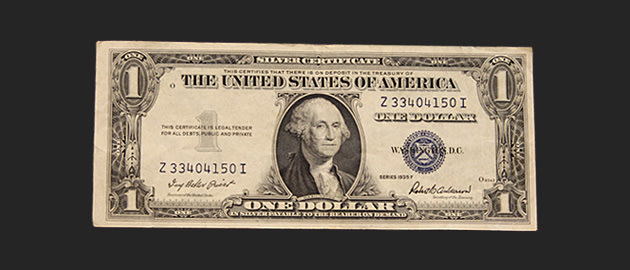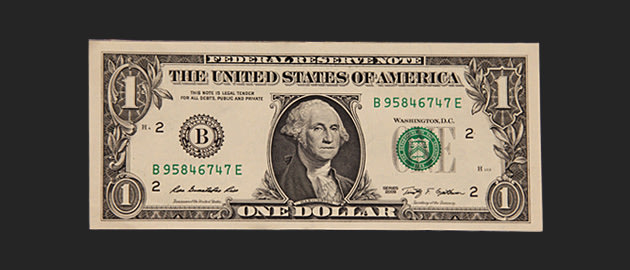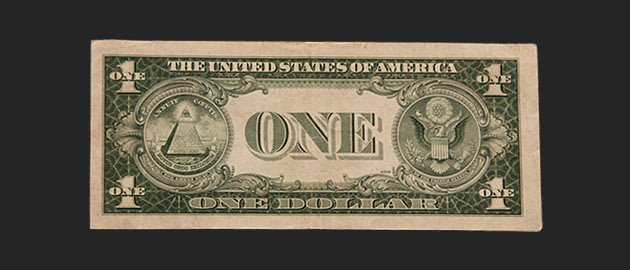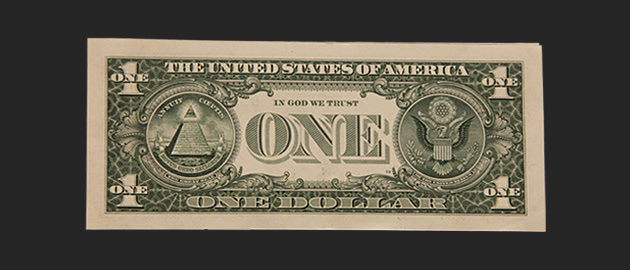In this age of debate about the value, or non-value, of the dollar, we've encountered a little something from the past that you probably don't see every day unless you're a currency collector -- a 1935 series U.S. dollar silver certificate.
Peter Gorenstein, executive producer for The Daily Ticker and Breakout, found one in his change. If you've not come across one of these in person before, you might at first think it's counterfeit, but it is real, and you can certainly buy things with it. Compare the 1935 certificate to a modern, 2009 series, Federal Reserve note below:


Among several different features that stand out between the two is a very prominent one: The promise on the old bill below George Washington's portrait that the certificate is equivalent to "One Dollar In Silver Payable To The Bearer On Demand." We know that some of our readers love the idea of investing in hard assets and of hard assets backing the U.S. currency. But despite what this dollar says, you can't get silver for it from the government. Your ability to redeem the certificates for silverwith the U.S. Treasury came to an end in 1968.
Now have a look at the back. Notice anything missing from the old one on top?


The phrase "In God We Trust" is absent. The 1935 series certificate was the last paper currency in the nation whose run began without the language -- it had been used and dropped previously on certain American coins. However, it was added later in the series, which was printed for several years. The bill we're showing here is the 1935F, without the wording, but it can be found on some subsequent G notes, first appearing in 1961, and on all of those in the H run, the last of the 1935s. (Other, newer bill series first carried the phrase in 1957.)
If you take this to a regular merchant right now, you can plan on it getting you $1 worth of goods, the same as your current Federal Reserve note. You might have a little more luck if you sell it privately than you would taking it to the neighborhood grocery store. Still, despite the note being somewhat unusual in 2012, it doesn't qualify as rare, so don't expect a dealer to make you rich for parting ways with it.
A quick check on eBay lists 197 individual lots containing the 1935F. The cheapest single certificate the online auction site has at the moment is listed for an opening bid of 99 cents. That's followed by offers of $1.04, $1.25 and on up. The most expensive item is a pack of 50 of the 1935Fs, with a price of $4,977.77. So it's a little nugget if you're interested in collectibles, and it's fun to compare. Or it's a stark reminder of what used to be.



No comments:
Post a Comment